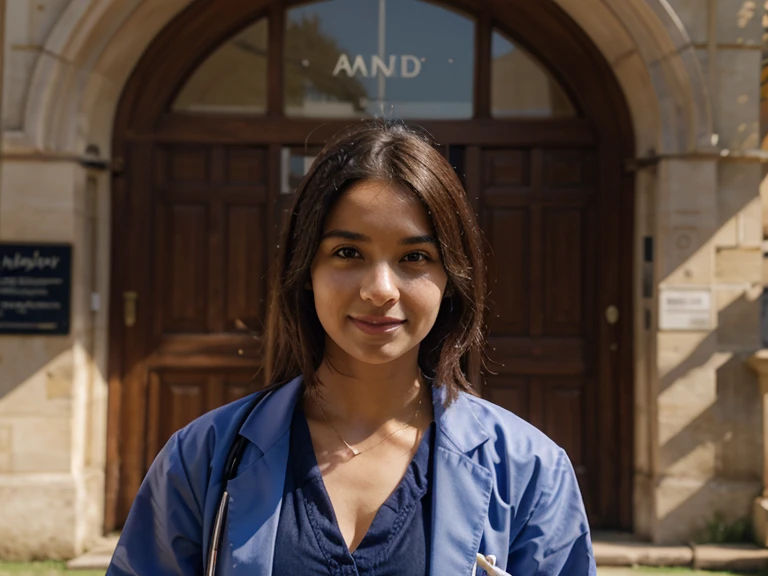
Cambridge. The name conjures images of soaring spires, hallowed halls, and a relentless pursuit of knowledge. While its undergraduate medical programs are widely celebrated, the University of Cambridge's Masters programs in Medical Education (MEd, MPhil, and Advanced Diploma) often remain somewhat hidden, quietly shaping the future of medical training itself. They're not just about teaching; they're about revolutionizing how we learn to heal.
This isn't your typical overview of postgraduate qualifications. We're diving deeper into what makes Cambridge's approach to medical education so unique, exploring its core philosophies, innovative methodologies, and the impact it's having on healthcare professionals globally.
A Curriculum Forged in Interdisciplinarity:
One of the defining features of the Cambridge experience is its commitment to interdisciplinarity. Forget siloed thinking; the Masters programs actively encourage collaboration between medical educators, researchers, policymakers, and clinicians from diverse backgrounds. This fosters a vibrant learning environment where insights from pedagogy, psychology, sociology, and technology converge to create a truly holistic understanding of medical education.
The curriculum isn't just about regurgitating established practices. It's about critically evaluating them. Students are challenged to question assumptions, analyze data, and develop innovative solutions to real-world challenges in medical training. This emphasis on critical thinking and research skills equips graduates with the tools to become effective leaders and change agents within their respective institutions.
Research at the Heart of the Matter:
Cambridge's strength lies in its robust research culture, and this extends directly into its Medical Education programs. Students are encouraged to engage in rigorous research projects, contributing to the growing body of knowledge in the field. This can involve investigating the effectiveness of new teaching methods, exploring the impact of technology on learning outcomes, or examining the psychosocial factors that influence student well-being.
The research opportunities are diverse and cutting-edge. Students might find themselves working on projects related to:
Simulation-based learning: Developing and evaluating realistic simulations to enhance clinical skills and decision-making.
Assessment and feedback: Exploring innovative approaches to assessment that provide meaningful feedback and promote self-reflection.
Professional identity formation: Investigating how medical students develop their professional identities and navigate the challenges of clinical practice.
Technology-enhanced learning: Harnessing the power of digital technologies to create engaging and effective learning experiences.
This emphasis on research ensures that graduates are not just consumers of knowledge but also active contributors to the field, capable of shaping the future of medical education.
Beyond the Lectures: A Focus on Practical Application:
While theoretical knowledge is undoubtedly important, the Cambridge programs place a strong emphasis on practical application. Students are encouraged to translate theory into practice through a variety of activities, including:
Teaching placements: Opportunities to observe and participate in teaching sessions, gaining valuable hands-on experience.
Curriculum development projects: Designing and implementing innovative curricula that address specific needs and challenges within their own institutions.
Consultancy projects: Working with healthcare organizations to improve their medical education programs.
This practical focus ensures that graduates are well-equipped to apply their knowledge and skills to real-world settings, making a tangible impact on the lives of medical students and ultimately, patients.
A Global Network of Leaders:
Graduating from a Cambridge Masters program in Medical Education connects you to a powerful global network of alumni who are shaping the future of medical training worldwide. These individuals are leaders in their respective fields, working in universities, hospitals, and healthcare organizations around the globe. This network provides invaluable opportunities for collaboration, mentorship, and professional development.
The Bottom Line:
Cambridge's Masters programs in Medical Education are more than just qualifications; they are transformative experiences that equip individuals with the knowledge, skills, and networks to become leaders and innovators in the field. They offer a unique blend of theoretical rigor, practical application, and research opportunities, preparing graduates to address the complex challenges facing medical education today and in the future. If you're looking to go beyond the bedside and truly shape the way we learn to heal, Cambridge offers a compelling and unparalleled opportunity.
